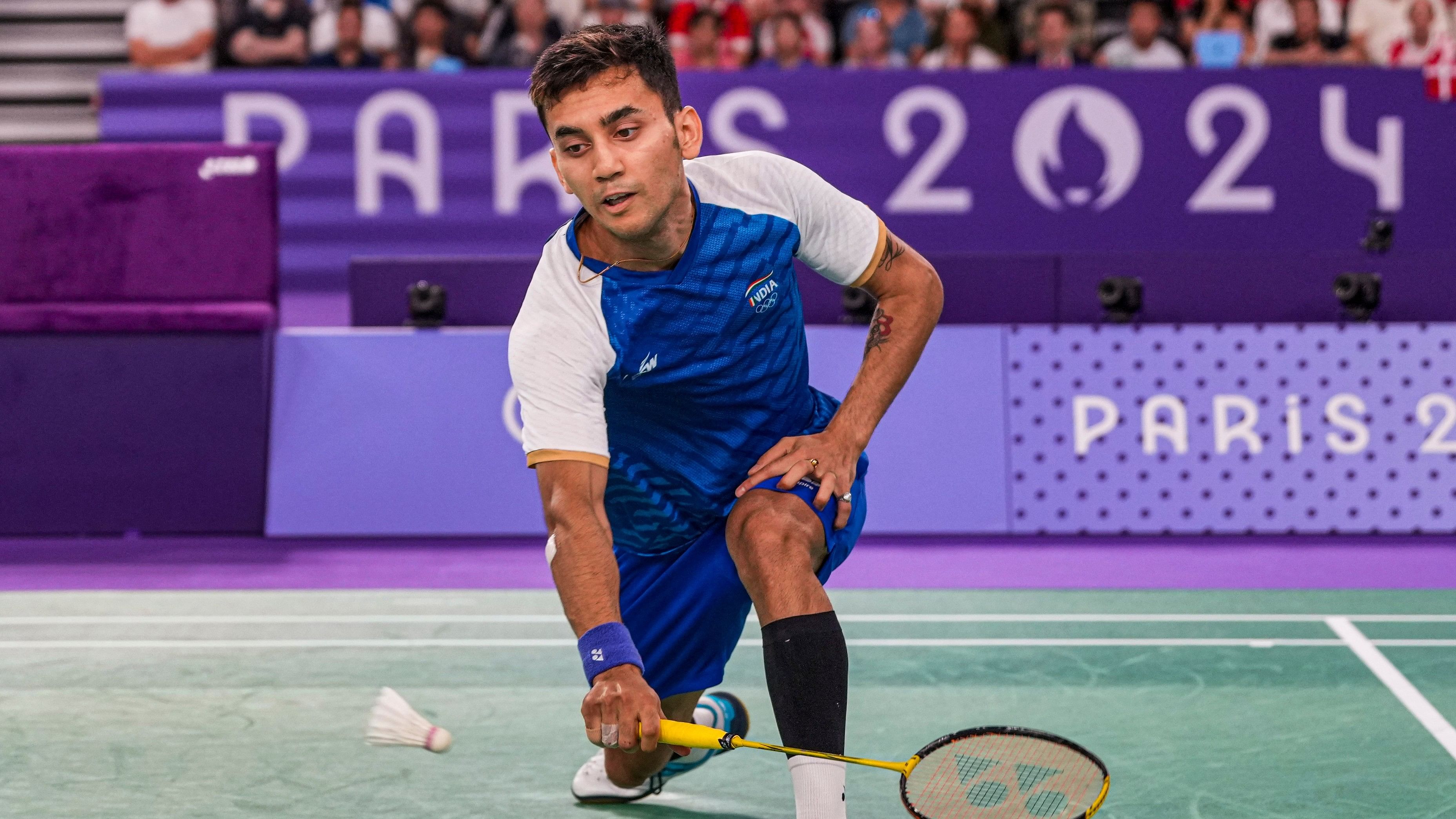
Lakshya Sen.
Credit: PTI Photo
New Delhi: India became so used to a badminton medal from the Olympics in the last 12 years that Paris 2024 seems nothing short of a disaster.
Lakshya Sen emerged as a notable bright spot with a fourth-place finish, but the Indian badminton team, including medal contenders such as P V Sindhu and Satwiksairaj Rankireddy-Chirag Shetty pair, returned empty-handed from the Olympics for the first time in over a decade.
The hopes of a medal were not misplaced, Sindhu was there again eyeing a hat-trick of medals, the ever-tenacious H S Prannoy (men's singles) had finally made it to his debut Olympics, and Ashwini Ponnappa and Tanisha Crasto (women's doubles) seemed in decent form.
As for Lakshya and Satwik-Chirag, they were seen as potential podium finishers even before the first match was held.
During the Paris cycle, badminton received considerable support too, including 13 national camps and 81 foreign exposure trips, funded under the Target Olympic Podium Scheme (TOPS).
The Sports Authority of India's (SAI) Mission Olympic Cell allocated Rs 72.03 crore, the second-largest funding among the nearly Rs 470 crore spent on India's Olympic preparations across 16 disciplines.
Despite the significant investment, the results in Paris fell short of expectations, highlighting the unpredictable nature of Olympic competition and also the mental aspect of playing at such an event.
Nothing demonstrated it more than Lakshya's implosion first in the semifinals against Viktor Axelsen and then in the bronze play-off against Lee Zii Jia of Chinese Taipei.
Sindhu, who had received Rs 3.13 crore in support, was unable to progress beyond the pre-quarterfinals, missing the chance to become the first Indian to win three Olympic medals.
"I am a little disappointed as he could not finish it. I am disappointed that we could not even win one medal in badminton. The government, SAI, and TOPS have done their bit. It is high time some of the players also need to take some responsibility," Lakshya's coach and former All England champion Prakash Padukone.
The unexpected defeat of former world number one Satwik and Chirag was the most shocking of all and added to the dismay, as they were considered gold-medal contenders.
The government had backed the players extensively, including Rs 26.60 lakh and Rs 9.33 lakh sanctioned for Sindhu and Lakshya's training in Germany and France, respectively.
Sindhu, a silver and bronze winner from the past two editions, had a 12-member support team in Saarbrucken during her training ahead of the Games but she failed to overcome He Bingjiao of China.
Satwik and Chirag had won two titles in four BWF World Tour finals this year and numerous medals in major events such as 2023 Asian Games, 2022 Commonwealth Games and the 2023 Asia Championships.
The government spent a total of Rs 5.62 crores on the celebrated Indian duo for the Paris cycle but they were upset by Malaysia's Aaron Chia and Soh Wooi Yik in the quarterfinals, prompting their Danish coach Mathias Boe to quit coaching.
Prannoy, a bronze-medallist at the 2023 World Championships and Asian Games, received Rs 1.8 crore for training but was hindered by Chikungunya ahead of the Games, leading to a loss in the pre-quarterfinals.
Ashwini and Tanisha, who received Rs 1.5 crore each in support, exited the tournament after failing to win any match in the group stage.
Despite the setbacks, Lakshya demonstrated resilience and skill, finishing fourth -- a notable achievement for an Indian male shuttler.
His victories over Indonesia's Jonatan Christie and Chinese Taipei's Chou Tien Chen were commendable, though his losses to eventual champion Axelsen and Zii Jia from comfortable positions exposed some major frailties.
As one looks ahead to the Los Angeles Games in 2028, it remains to be seen whether the 29-year-old Sindhu can maintain her fitness.
However, there is optimism that Satwik-Chirag and Lakshya will leverage their Paris experience.
With emerging talents like Priyanshu Rajawat and Treesa Jolly-Gayatri Gopichand poised to make an impact, India's badminton prospects remain promising for the next four years.